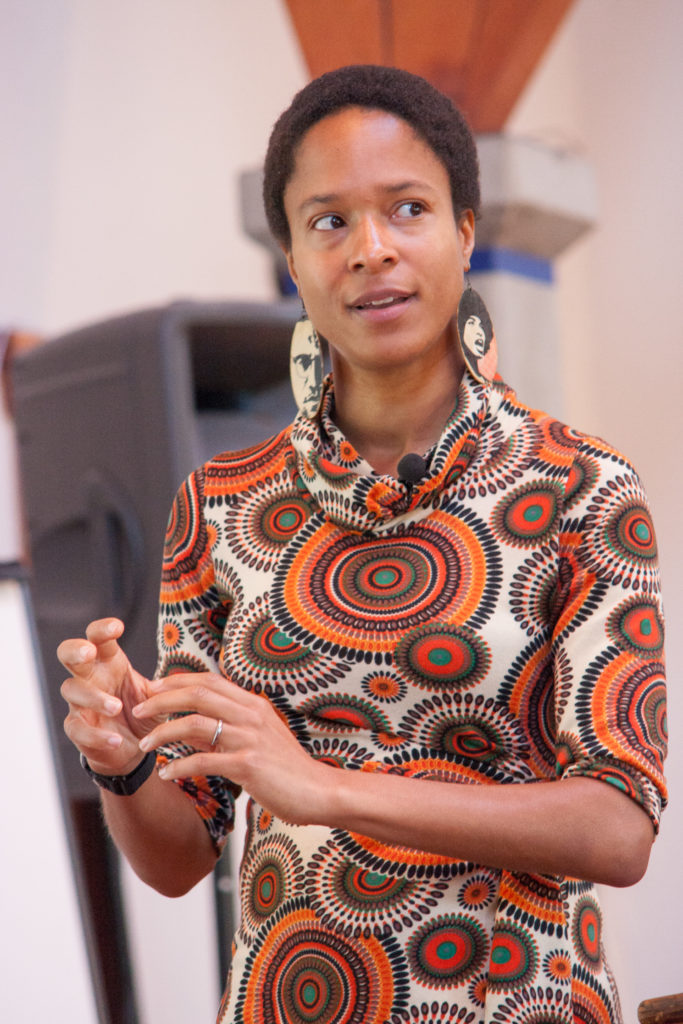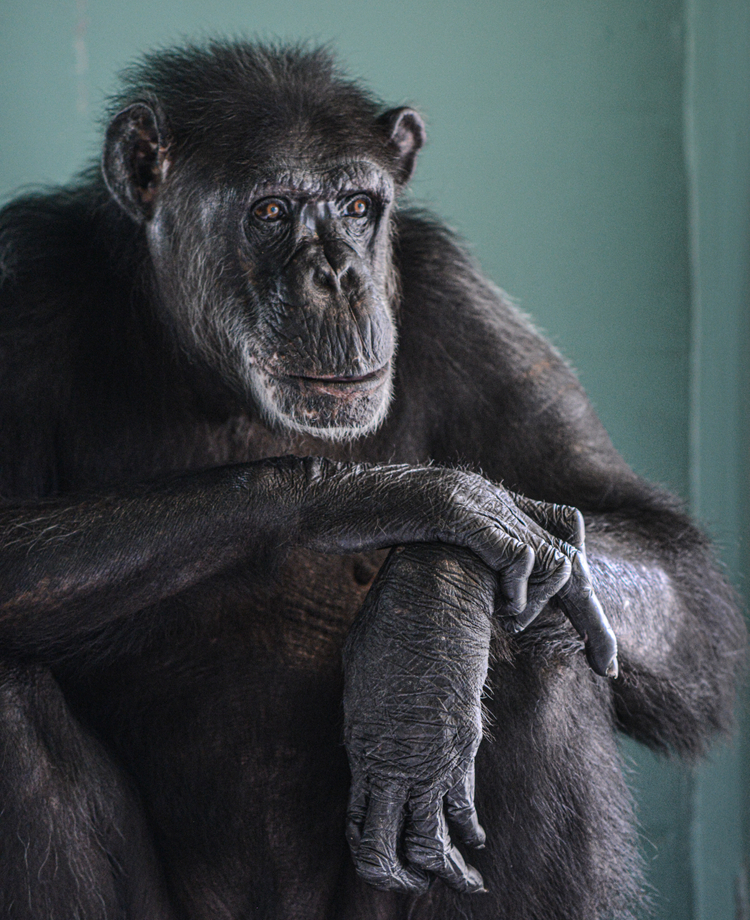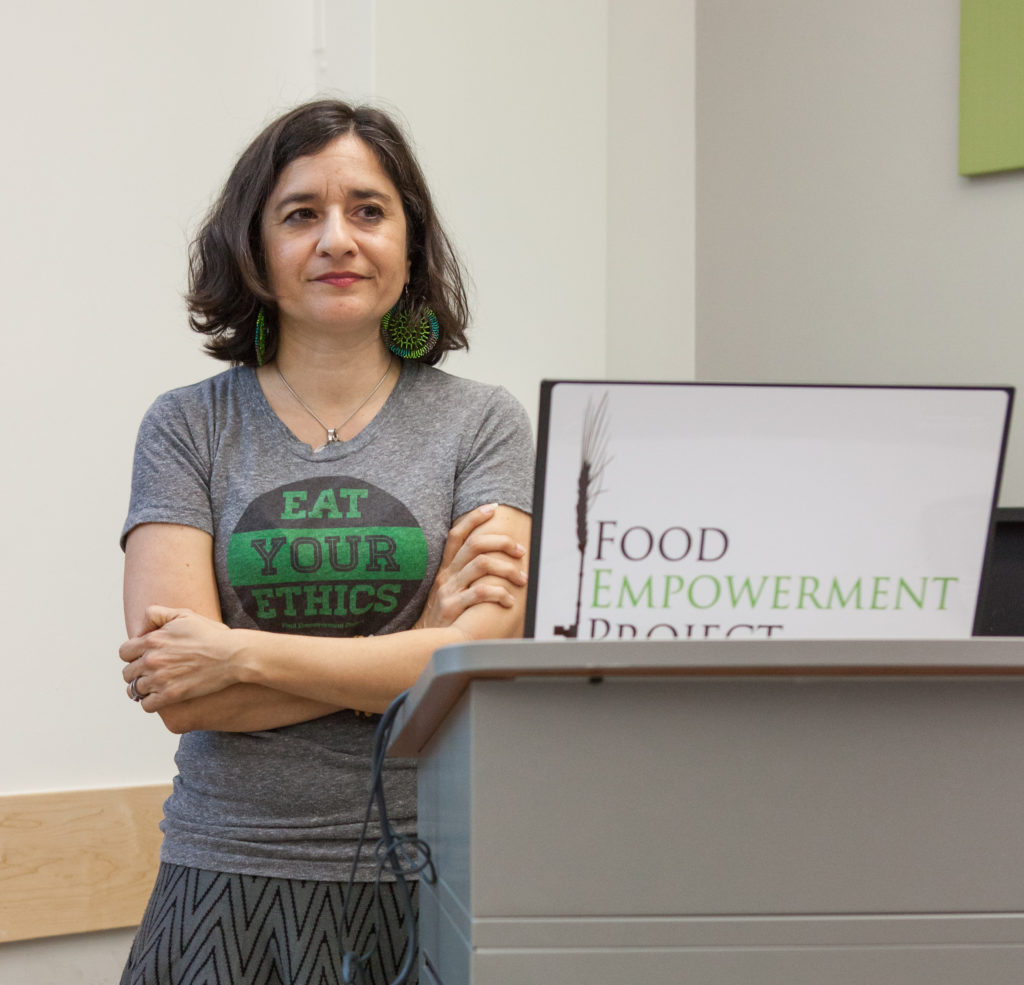During my time at the Animal Legal Defense Fund (ALDF), I became aware of a schism between proponents of carceral vegan discourse—i.e., “hurt an animal, go to jail”— and a collaborative advocacy approach that moves beyond single-issue veganism. These tensions in the animal law field have led to unionization by ALDF staff and union busting efforts by ALDF management, a battle over the discursive elements of animal law communications, and continuing dialogue over whether standing up against injustice against humans, such as continuing police violence towards Black men and children, dilutes the message and success of animal rights rhetoric.

As it has been named by scholar Iyan Offor, a second wave of animal ethics from the margins seems ready to dismantle the oppressive structures within the contemporary animal law movement. These structures reify the systemic injustices outside of these institutions, from speciesism to misogyny to white supremacy to transphobia. In this context, groups such as Rights for Animal Rights Advocates (RARA) and the Interconnected Alliance (formerly incubated and affiliated with Sinergia Animal) have developed to protect the rights of workers, who face sexual harassment and violence, unfair labor practices, activist burnout, and high rates of PTSD, and to help organizations build solidarity with other social justice movements. Led primarily by those who have been excluded, eclipsed, and ignored by the single-issue vegan approach, these second wave advocates—exemplified by the work of S. Marek Muller, Corey Wren, Julia Feliz, pattrice jones, Aph and Syl Ko, Sunaura Taylor, Maneesha Deckha, Margaret Robinson, Dr. A. Breeze Harper, and Christopher Sebastian—offer a total liberation approach to animal ethics. This approach decenters whiteness and critiques the entanglements a single-issue approach to animal liberation has with ableism, capitalism, and cisheteropatriarchy.
It is from this genealogy that S. Marek Muller’s Impersonating Animals: Rhetoric, Ecofeminist, and Animal Rights Law emerges. Muller’s text offers a direct challenge to the burgeoning animal law movement, asking advocates and lawyers to interrogate their tactics, rhetoric, and goals. Impersonating Animals is a call to action for animal advocates and lawyers to challenge the inconsistencies and ideological incoherence of their discourse, in part by questioning whether or not it is saturated in uninterrogated histories of colonialism and white supremacy and whether it impedes social justice. Building on decades of work by vegans of color, she introduces their critiques of the mainstream vegan movement to rhetorical analysis, arguing that an organization’s discourse, rhetoric, and legal arguments are in and of themselves forms of power that affect materiality. Her chapters ask why specific legal arguments were created, how they function, what their impact is, why they succeed and/or fail, and what a critical vegan rhetoric can offer animal law rhetoric.
The animal law movement has used multiple frameworks in which to address animal liberation: inherent rights, personhood, and vegan abolition as exemplified by Gary Francione. Muller argues that both welfarist and rights approaches to animal law ultimately fail to accomplish true liberation and only reify existing structures of oppression. As an alternative, she posits a critical vegan approach to animal law that fights for multispecies justice and is built upon the pillars of ecofeminist theories, feminist legal studies, and critical animal studies.
Muller’s first chapter, “Critical Refurbishments: Feminist Legal Theory and Rhetorical Methodologies,” introduces the Enlightenment foundation and liberal humanist thought that has informed contemporary animal welfarist and rights law. She argues that these positivist frameworks, which rely on rationality and sentience, are “ultimately insufficient for producing lasting social change and justice.” Muller also critiques the normative utilitarian and rights-oriented discourse espoused by Peter Singer and Tom Regan, which has been adopted by the mainstream vegan movement, and instead offers an ecofeminist and critical animal studies theoretical genealogy to inform contemporary animal law. Specifically, in this chapter she introduces theorists working towards decolonization to conversations concerning animal law, total liberation, and rhetoric studies.

In “All Animals Are Equal (but Some Are More Equal than Others,” Muller goes on to critique the personhood framework and its surrounding discourse exemplified by the Nonhuman Rights Project, which she contends is an example of “taking a legal formalist approach to animal rights.” She argues that the Nonhuman Rights Project’s focus on the legal status of apes, elephants, dolphins and whales reifies human exceptionalism and posits that only animals distinguished as similar to humans are worthy of moral consideration. Muller explains that “humanist notions on positive/negative rights…[are]rife with speciesism” and that a precedent sent by this organization would actually “harm an animal rights agenda more than help it.”
In the third chapter, “For the Good of the Species,” Muller challenges the success of the rhetoric and legal arguments of the esteemed legal advocate Gary Francione. Despite his vegan abolitionist work, Muller contends that that Francione’s “vehement essentialisms ultimately align with a mode of legal and moral positivisms that prohibit total liberation.” Muller illustrates how by offering a “faux-intersectional veganism,” Francione’s work is at fault of being an example of “species essentialism.” Through an analysis of his blogger battle with celebrated scholar-activists of color Ruby Hamad and Breeze Harper, Muller also demonstrates how Francione “represents a strain of postracial rhetoric.”
Muller’s fourth chapter, “Radical Envrionmentalism as Animal Rights Law,” explores the potential for animal rights law to work towards total liberation by engaging with environmental legal thought. This chapter is especially timely, as Randall S. Abate’s second edition of What Can Animal Law Learn From Environmental Law? was recently published, with contributors heralding from organizations such as the Animal Legal Defense Fund, Richman Law Group, and Harvard Law School’s Animal Law & Policy Program. However, like the earlier case studies, Muller finds that “while Earth jurisprudence is perhaps the closest…to adhering to an ecofeminist legal theory, it ultimately misses the mark.”
Impersonating Animals offers a comprehensive history of the main tensions within the animal advocacy movement today. Authored by an authority on this subject, who also is an activist-scholar invested in total liberation, this text not only is mandatory reading for animal law students, but also animal lawyers and advocates working within the institutions that she critiques. Muller articulates an “animal rights and vegan ethics…that rhetorically decenters hegemonic ideologies and allows for a more complex view of how ‘animals’ and ‘animals’…interact and ‘intra-act’ through complex systems of power.” Integral to Muller’s critical vegan rhetoric is open interrogation with histories of colonialism, white supremacy, and cisheteropatriarchy that inform contemporary political economies as well as rhetoric.

Muller argues that animal law must shift from a pragmatist approach that does not challenge the liberal humanist legal system to an animal rights law that encourages both grassroots community lawyering approaches as well as top-down traditional legal work. Furthermore, this new approach must work both within and outside of legal institutions, and embrace a total liberation approach that includes pursuing human, as well as non-human, empowerment. Muller offers the Food Empowerment Project as an example of this approach towards total liberation work.
In the context of recent unionization efforts at plant-based food company No Evil Foods and the Animal Legal Defense Fund, as well as the recent organizing of the group Rights for Animal Rights Advocates, this conversation is more important than ever. In order to fight for nonhuman justice, outside and within animal law, it is imperative that we embrace a critical vegan rhetoric that is focused on achieving liberation for all.
Featured image: a judge’s gavel. Image credit slgckgc, CC BY-SA 3.0.






3 Comments
First, please translate this sentence: ‘ Muller illustrates how by offering a “faux-intersectional veganism,” Francione’s work is at fault of being an example of “species essentialism.” This article obviously is written by an academic, but I believe plain English works better to communicate with the common man, and woman. Second, having been involved in animal rights for many years, I have seen all manner of approaches to achieving the goal of animal rights. Despite the attempt to merge with the environmental movement for instance, few environmentalists stood with animal rights activists in demos or other actions. It was a one sided show of support for the most part. And the danger of expanding to address all social and environmental injustice risks losing the focus on justice for animals. What I saw on social media for instance was vegans castigating other vegans for not supporting protests for social justice in the way they felt was needed, it devolved into heated arguments that did nothing to further the cause of either movement.
From what I understand, the NHRP is focusing now on apes and elephants for instance, as those species are easier for people to relate to as far as having rights, that does not mean that the goal is not to achieve rights for all animals. You have to start somewhere. To even get a court to consider the argument for animal rights is a huge feat. I appreciate that the author wants to find more effective ways to achieve animal freedoms, but in practical terms, “intersectionality” and “ecofeminism” are buzz words, and not even well understood buzz words that probably alienate more than unite activists, and have not proven to move the goal closer to achieving rights for animals.
You are so right. The day someone who is oppressed comes to me and says I’m a vegan and Israel or somewhere else is oppressing me, is the day I will help them. Meanwhile I’ll concentrate on animals because as I see it the moment oppressed people achieve freedom, they start eating more meat. That’s not a reason for supporting their oppression of course but I’m not about to assist movements that when successful will then impose more oppression on animals.
Found your post interesting to read. I cant wait to see your post soon. Good Luck with the upcoming update. This article is really very interesting and effective.